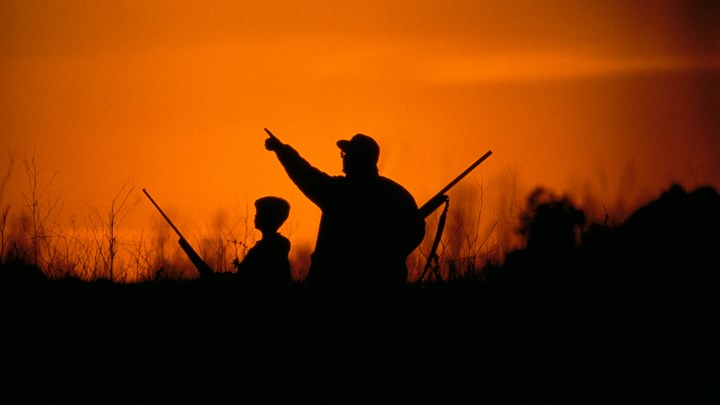
by Brian McCombie - Thursday, April 17, 2025

One way to damage hunter-backed wildlife conservation efforts in this country that hasn’t received much attention is through the efforts of anti-gun and anti-hunting types to impose additional state-level taxes on firearms and ammunition. Such taxes, referred to as “sin taxes,” have the potential to reduce the sales of both products, diminishing the amount of federal excise taxes already collected on firearms and ammunition that are earmarked for America’s conservation programs.
Unfortunately, this extra tax is already being applied to such purchases in a couple of states. Worse, these taxes could become the reality in other states, too.
As the NRA Institute for Legislative Action (NRA-ILA) recently noted, “California has already implemented an 11 percent excise tax on firearms and ammunition to fund gun-control initiatives and to discourage lawful firearm ownership. Colorado also recently implemented a 6.5 percent excise tax on firearms, firearm precursor parts and ammunition—and Maryland, Massachusetts, New Mexico, New York, Vermont and Washington are also considering similar proposals.”
The good news is that U.S. Sen. Jim Risch (R-ID) and U.S. Representatives Darrell Issa (R-CA-48) and Richard Hudson (R-NC-9) recently reintroduced the Freedom from Unfair Gun Taxes Act (S.1169 and H.R.2442, respectively). This legislation would prohibit states from levying excise taxes on firearms, ammunition and components.
“For too many years, extreme state policies—including from my home state—have targeted our fundamental Second Amendment rights and the American citizens who exercise them,” said Issa. “The latest attack is California’s imposition of a ‘sin tax’ on firearms and ammunition. This outrageous and unfair burden on law-abiding citizens is why Sen. Risch, Rep. Hudson and I are working to stop this and other attempts to penalize our people and put the price of self-defense out of reach of any American.”
As we recently pointed out here on the NRA Hunters’ Leadership Forum website, financial contributions to American wildlife conservation are generated by the aforementioned federal taxes on the sale of firearms, ammunition, archery and angling equipment, and on fuel and small engine tax. In 2025, those contributions amounted to $1.3 billion in monies distributed to the states.
Funding is thanks to the Wildlife and Sport Fish Restoration Act of 1937, commonly known as the Pittman-Robertson Act (P-R) in honor of its congressional sponsors, which “imposes an 11 percent tax on firearms, ammunition and archery equipment. The manufacturers turn over the excise taxes that sportsmen and women pay to the Department of Interior’s U.S. Fish and Wildlife Service for distribution to the states using a formula based on the area of the state and the number of its licensed hunters. The revenue is combined with license, permit and stamp fees paid to state wildlife agencies by hunters, anglers, trappers and recreational shooters.”
Over the course of the last 88 years, notes the NRA HLF, “the P-R Act has invested a whopping $29 billion-plus in wildlife conservation funding programs to monitor and manage our nation’s fish and wildlife resources, support hunter and aquatic education, and improve access for outdoor activities like hunting, fishing and boating.”
This is part of the reason why Virginia Gov. Glenn Youngkin recently vetoed a slew of anti-gun bills that had the potential to hurt wildlife conservation in that state. While none of these bills would have levied taxes on firearms or ammunition, the proposed pieces of legislation would have banned many commonly owed firearms from being sold in Virginia, including semi-automatic rifles and shotguns used by hunters. The Virgina bills also could have impacted hunter recruitment by either these outright bans on popular hunting firearms and/or by restricting people under age 21 from using them.
As the NRA and this website also regularly note, such measures also negatively impact a state wildlife agency’s efforts to recruit, retain and reactivate hunters and recreational shooters, an initiative known nationally as the R3 movement.
These “sin tax” legislative proposals are often introduced under the guise of funding various programs related to the criminal misuse of firearms. In effect, such proposals would make law-abiding hunters and gun owners pay for the criminal acts of others—literally.
Hunters and other conservationists need to be aware that much of the anti-gun legislation being brought forward is ultimately anti-hunting as well and, whether intended or not, may well diminish wildlife conservation efforts at the state level.
About the Author
Brian McCombie is a field editor for the NRA’s American Hunter and writes about firearms and gear for the NRA’s Shooting Illustrated. A member of the National Rifle Association and the National Shooting Sports Foundation, Brian enjoys hunting hogs, shooting 1911s, watching the Chicago Bears and relaxing with his two cats.
E-mail your comments/questions about this site to:
[email protected]
